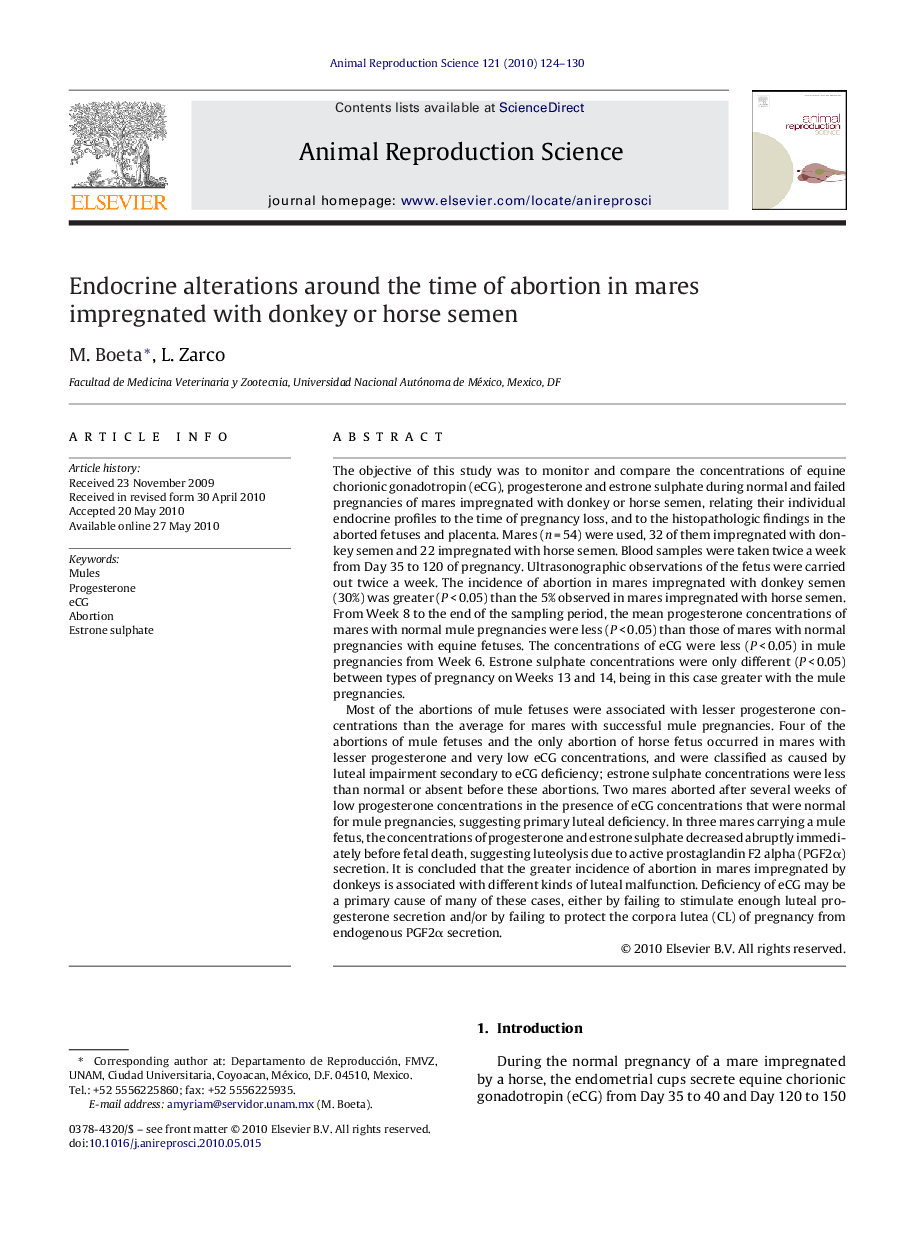| Article ID | Journal | Published Year | Pages | File Type |
|---|---|---|---|---|
| 2073683 | Animal Reproduction Science | 2010 | 7 Pages |
The objective of this study was to monitor and compare the concentrations of equine chorionic gonadotropin (eCG), progesterone and estrone sulphate during normal and failed pregnancies of mares impregnated with donkey or horse semen, relating their individual endocrine profiles to the time of pregnancy loss, and to the histopathologic findings in the aborted fetuses and placenta. Mares (n = 54) were used, 32 of them impregnated with donkey semen and 22 impregnated with horse semen. Blood samples were taken twice a week from Day 35 to 120 of pregnancy. Ultrasonographic observations of the fetus were carried out twice a week. The incidence of abortion in mares impregnated with donkey semen (30%) was greater (P < 0.05) than the 5% observed in mares impregnated with horse semen. From Week 8 to the end of the sampling period, the mean progesterone concentrations of mares with normal mule pregnancies were less (P < 0.05) than those of mares with normal pregnancies with equine fetuses. The concentrations of eCG were less (P < 0.05) in mule pregnancies from Week 6. Estrone sulphate concentrations were only different (P < 0.05) between types of pregnancy on Weeks 13 and 14, being in this case greater with the mule pregnancies.Most of the abortions of mule fetuses were associated with lesser progesterone concentrations than the average for mares with successful mule pregnancies. Four of the abortions of mule fetuses and the only abortion of horse fetus occurred in mares with lesser progesterone and very low eCG concentrations, and were classified as caused by luteal impairment secondary to eCG deficiency; estrone sulphate concentrations were less than normal or absent before these abortions. Two mares aborted after several weeks of low progesterone concentrations in the presence of eCG concentrations that were normal for mule pregnancies, suggesting primary luteal deficiency. In three mares carrying a mule fetus, the concentrations of progesterone and estrone sulphate decreased abruptly immediately before fetal death, suggesting luteolysis due to active prostaglandin F2 alpha (PGF2α) secretion. It is concluded that the greater incidence of abortion in mares impregnated by donkeys is associated with different kinds of luteal malfunction. Deficiency of eCG may be a primary cause of many of these cases, either by failing to stimulate enough luteal progesterone secretion and/or by failing to protect the corpora lutea (CL) of pregnancy from endogenous PGF2α secretion.
